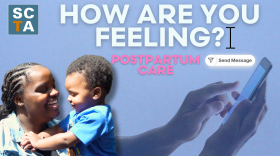Joy Bonala
Reporter/Producer-
As an unprecedented measles outbreak spreads across the Palmetto State, healthcare providers are using telehealth to screen and treat patients in order to reduce exposures of the disease.
-
Maternal mental illness affects one in five women annually in the United States, and it is the leading cause of maternal mortality, due to suicide and drug overdose.
-
Veterans experiencing homelessness often face a host of barriers to health care. For many, the only option is the emergency room, which fragments care and pushes them into crisis more quickly.
-
When it comes to improving health outcomes for postpartum women, it’s important to catch any early signs of postpartum complications. Things like headache, shortness of breath, nausea, or excessive bleeding.
-
Almost 7 million Americans on Medicare use telehealth for doctor visits. But since the government shutdown began last month, access to telehealth has been irregular.
-
The clock is ticking for Congress to reach a funding agreement and avoid a government shutdown. If an agreement isn't reached, the Medicare telehealth flexibilities put in place in 2020 would expire, which could result in Medicare patients losing access to telehealth services.
-
In South Carolina, an estimated one in six people under the age of 17 experience a mental health disorder. But treatment options can be complicated due to a nationwide shortage of psychiatrists.
-
School-based telehealth increases access to high quality health care for students, but the benefits of school-based telehealth also extend to educators.
-
National surveys are reporting a drop in the rate of fatal drug overdose deaths in the United States. Many public health experts credit life-saving medications and treatment programs for the improvement.
-
At 95 years old, Mrs. Jessie Sinkler took a digital literacy class that changed her life. She learned how to navigate a tablet, connect to the internet, Facetime with relatives, and use telehealth to meet with her doctor.











